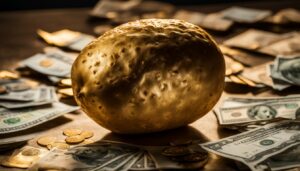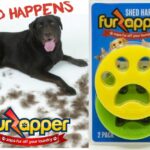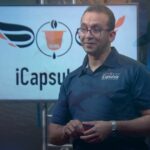Published on:
Dbest Products Net Worth
Generally, aspiring entrepreneurs appear on Shark Tank when they have little to their names but an abundance of enthusiasm and an idea.
So the investors were more than a little perplexed when Londoner Richard Elden presented to them with an already successful business worth some $7 million, and a three million dollar order from QVC who had been selling his products for the past fifteen years.
The reason he was there was that he was looking for a partner to fund his inventory so that he could fulfill existing orders. His problem was that his business was growing too quickly, and he resented the idea of going to the bank for a loan.
Instead, he was happy to offer equity in exchange for quick cash, so that he could be sure of retaining his share of the market.
Richard’s breakthrough came when the state of California, where he now lived, introduced a ban on single-use plastic bags.
Inspired both by the opportunities this presented and by his own commitment to protecting the environment, he pioneered a range of highly portable carts which, despite being incredibly lightweight, could transport impressive loads.
Rather than relying on promoting one product, Richard had consistently designed and rolled out new models, a cart for every purpose.
Whether it was for transporting shopping, conveying a beloved pet, or negotiating flights of stairs, there was a cart in his portfolio that was purpose-built for the task at hand.
At a Glance
Richard Elden appeared on Shark Tank to ask for $350,000 in exchange for a 5% stake in his already successful business. He needed funding to enable him to fulfill existing orders without having to ask for a bank loan.
As a demonstration of the durability of his products, he brought in concrete blocks totaling 110 pounds in weight, which he transported with ease in one of his carts.
Once the Sharks had gotten over their early skepticism over why an entrepreneur in his position was looking for a partnership, they began to pitch in with their own tentative offers.
Ultimately it was a joint offer from Mark Cuban and Lori Greiner which cut the deal.
Who is the Founder?
Richard Elden was just nine years old when he arrived in California from his native London, with his mother, in search of a better life.
He did well at school and emerged from the University of Southern California with a Bachelor of Science in Communications, and went on to achieve a Masters in Business Administration from Pepperdine University.
Some Californians saw the introduction of a ban on single-use plastic bags as a burden but for Richard, it was to become an opportunity.
An environmentalist by instinct, he saw an opening in the market for a portfolio of sturdy carts and carriers that could be put to use for a multitude of purposes, including shopping and the transportation of liquids.
His product range rapidly achieved popularity throughout the US, and he soon expanded his business to another thirty countries worldwide.
Did dBest Get a Deal on the Show?
Richard was seeking a partner to purchase a 5% share in his business for $350,000, to assist with his cash flow. Daymond John offered the requested amount for 15%, with a promise to finance all future orders.
Kevin O’Leary also offered the money as a line of credit at 18% with the requested 5% share. In the end, he accepted a joint offer from Lori Greiner and Mark Cuban, who actually insisted upon 20% equity with an additional $2 million at 15%.
However, the records show no mention of this ever being taken up, and the assumption is that the deal fell through.
What Happened to the Entrepreneur After the Show?
The range of products sold by dBest has grown since Richard Elden’s memorable pitch on Shark Tank, and sales have been in a sharply upward direction.
His light and portable carts are on sale through Amazon, Walmart, PetCo and Staples, as well as other major outlets and of course through his own social media presence.
Presently the company is said to be making in the region of between $8 million and $10 million per year, and its net worth is believed to be in the vicinity of $22.5 million.
Dbest Products is now the number one portable cart supplier in the US.
About the Product
Dbest’s product line is constantly getting rave reviews, but it all began with a simple piece of legislation on the part of California’s lawmakers.
As the world comes to terms with the devastating impact upon the natural environment of single use plastics, the West Coast state acted swiftly to protect our shorelines and oceans.
Suddenly there was a demand for a carrier which was reusable, sturdy enough to carry large and heavy weights and yet still portable, allowing for easy conveyance and storage.
The original product, called the Quik Cart, was soon to be joined by the Smart Cart, the Stair Climber Dolly and trolleys for carrying around quantities of water.
They are perfect for picnics, taking a day fishing trip or carrying to the office.
Designing new carts for new situations is a challenge that the inventor sets himself, and consistently meets.
During his pitch to the Sharks, Richard demonstrated the reliability of his carts by taking with him three blocks of concrete with a total weight of 110 pounds, which compares extremely favorably with any supermarket shopping bag.
He also explained that it spite of their presence they did in fact fold down to a very transportable size and shape. The Sharks were visibly impressed.
Unlike most other applicants appearing on the program, his business was already booming, but he needed some ready finance – and just possibly a little publicity boost.
Some Interesting Facts
Few underestimate the challenge facing the world when it comes to replacing single-use plastics in a responsible way.
With the free flow of money and investment available in the United States, Richard’s mother may have foreseen the enterprising future ahead for her son when she took that fateful decision nine years after he was born.
Despite their strength, dBest’s carts generally weigh as little as five pounds apiece. It is unsurprising therefore that the company uses only the finest quality materials.
Unlike some products which are designed to fail and to be quickly (and expensively) replaced, dBest’s trolleys and dollies are built to last.
Like all entrepreneurs Richard was faced with the challenge of marketing his products, but once supplies like Amazon and Walmart were on the case it was only ever going to make for a successful strategy.






